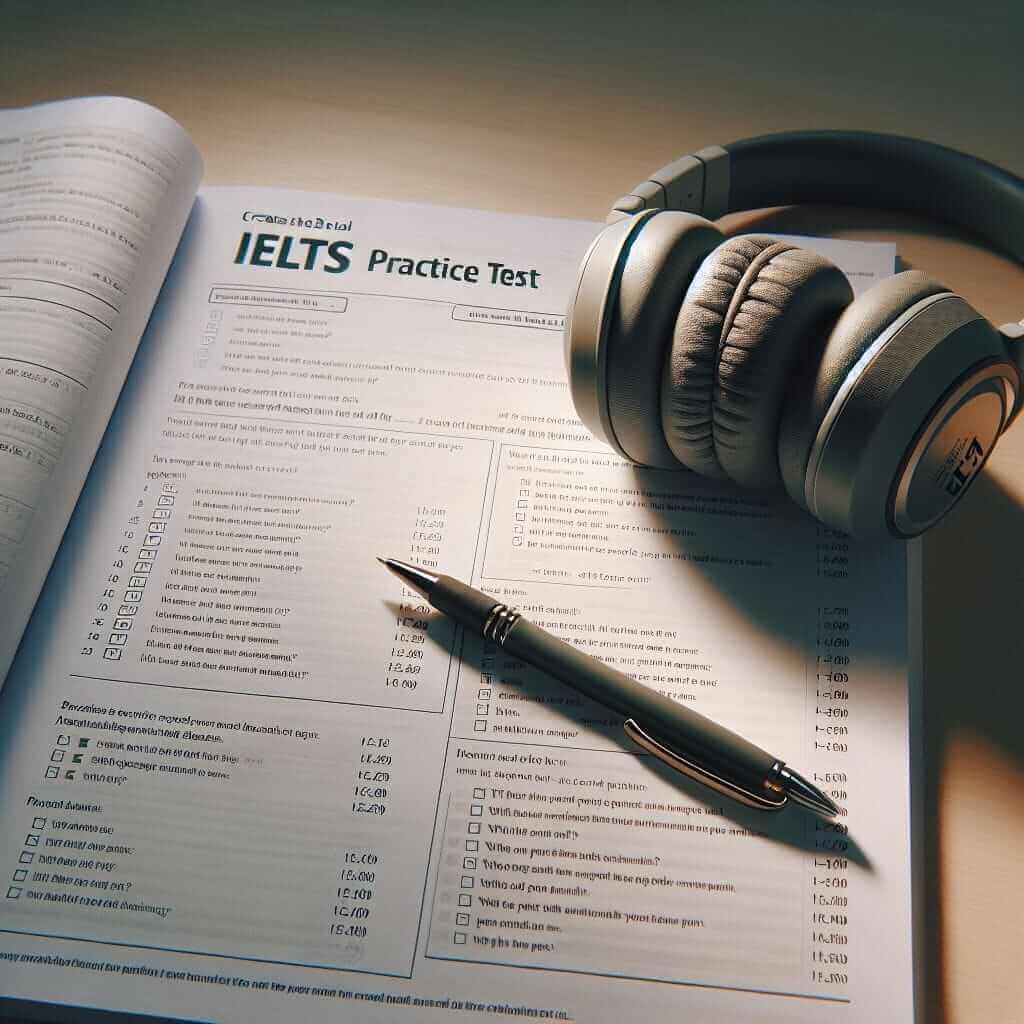The Importance of IELTS Listening
The IELTS Listening test is often cited as one of the most challenging parts of the exam, especially for those unfamiliar with various English accents. It assesses your ability to understand spoken English in a variety of contexts, from everyday conversations to academic lectures. Mastering this section is crucial for achieving your desired IELTS band score.
Understanding the IELTS Listening Test Format
Before delving into strategies, it’s essential to understand the structure of the test:
- 4 Sections: The test comprises four sections, each with 10 questions, making a total of 40 questions.
- Varied Accents: You’ll encounter a range of native English accents, including British, American, Australian, and Canadian.
- Once Only: The recordings are played only once, so attentive listening is paramount.
- Answering Time: You have time after each section to review your answers and 10 minutes at the end to transfer them to an answer sheet.
Effective Strategies to Improve Your IELTS Listening Skills
Here are proven techniques I’ve shared with my students over the past two decades to significantly improve their listening comprehension:
1. Active Listening is Key
Avoid passive listening. Engage actively with the audio by:
- Predicting: Before each section starts, look at the questions and anticipate what you might hear.
- Identifying Keywords: Focus on keywords and phrases in both the questions and the audio.
- Note-Taking: Develop a system for jotting down key information like names, dates, and keywords.
2. Expand Your Vocabulary
A wide vocabulary is essential for understanding different accents and contexts.
- Learn Synonyms: Familiarize yourself with various synonyms for common words.
- Academic Vocabulary: Pay attention to academic vocabulary frequently used in lectures and discussions.
- Contextual Clues: Use the context of the audio to infer the meaning of unfamiliar words.
3. Master Different Accents
Exposure to diverse English accents is crucial.
- Listen Regularly: Make English audio a part of your daily routine – podcasts, news, TV shows, and movies are great options.
- Focus on Pronunciation: Pay attention to how words are pronounced in different accents.
- Practice Tests: Utilize IELTS practice tests to familiarize yourself with the range of accents you’ll encounter in the exam.
4. Practice Makes Perfect
Consistent practice is the key to success in the IELTS listening test.
- Official Practice Materials: Utilize official IELTS practice tests to simulate the exam experience.
- Analyze Your Mistakes: After each practice test, carefully review your errors to identify areas for improvement.
- Time Management: During practice, time yourself to ensure you can complete all sections within the allotted time.
 IELTS Listening Practice Test
IELTS Listening Practice Test
Example from an IELTS Listening Test
You hear two people talking about a new sports centre.
Woman: So, have you been to the new sports centre yet? I heard it’s quite impressive.
Man: Yeah, it’s amazing! They’ve got a massive gym with all the latest equipment, and the swimming pool is Olympic-sized!
Question: What does the man think of the sports centre?
Possible Answers:
A. He hasn’t been there yet.
B. He thinks it’s very impressive.
C. He thinks the equipment is outdated.
Correct Answer: B – He thinks it’s very impressive.
Top Tips for IELTS Listening Exam Day
- Stay Calm and Focused: Nervousness can hinder your listening comprehension. Take deep breaths and concentrate on the audio.
- Read Instructions Carefully: Misinterpreting instructions can lead to incorrect answers.
- Use Headphones: If allowed, use headphones to minimize distractions and focus on the audio.
- Write Clearly: Ensure your answers on the answer sheet are legible to avoid losing marks.
Conclusion
Mastering the IELTS listening test requires a multi-faceted approach involving consistent practice, vocabulary building, and familiarization with different accents. By following the strategies outlined in this guide and dedicating sufficient time to preparation, you can confidently approach the listening section and achieve your desired IELTS band score.


